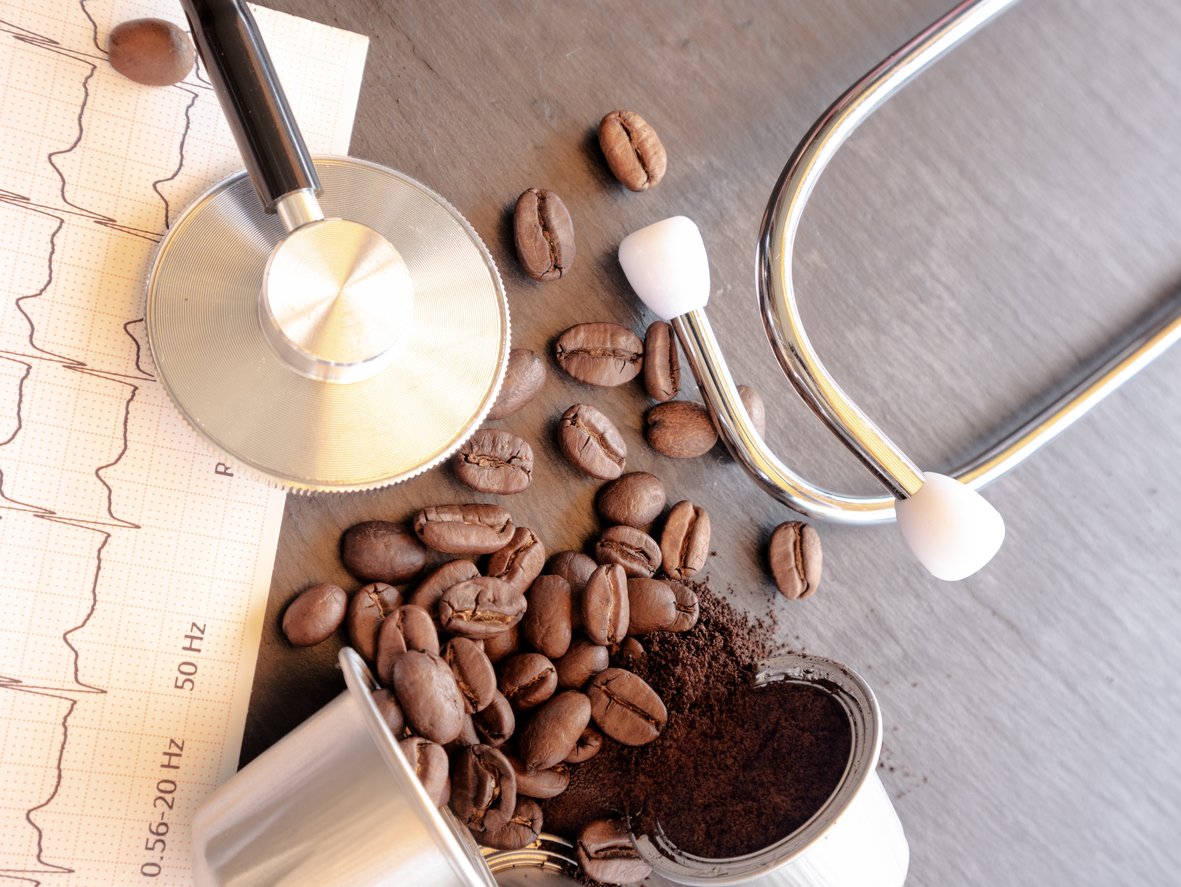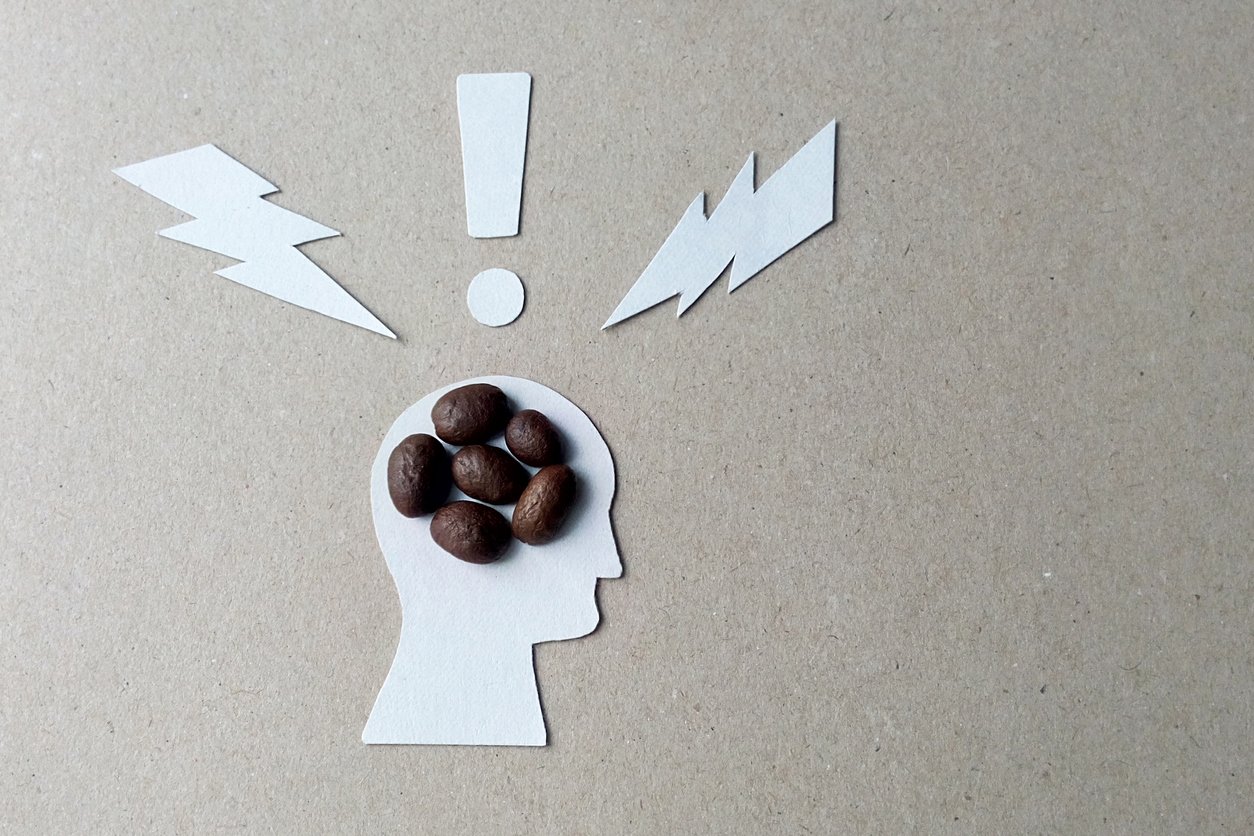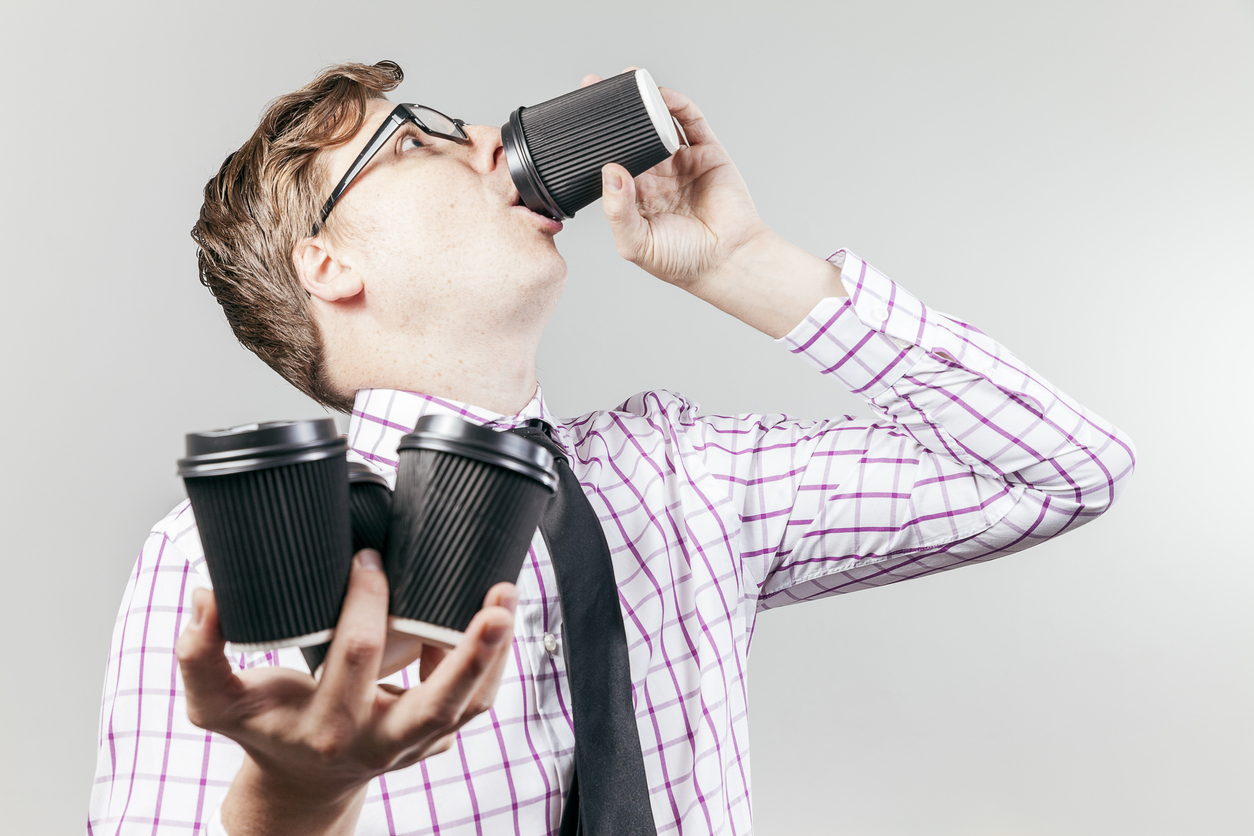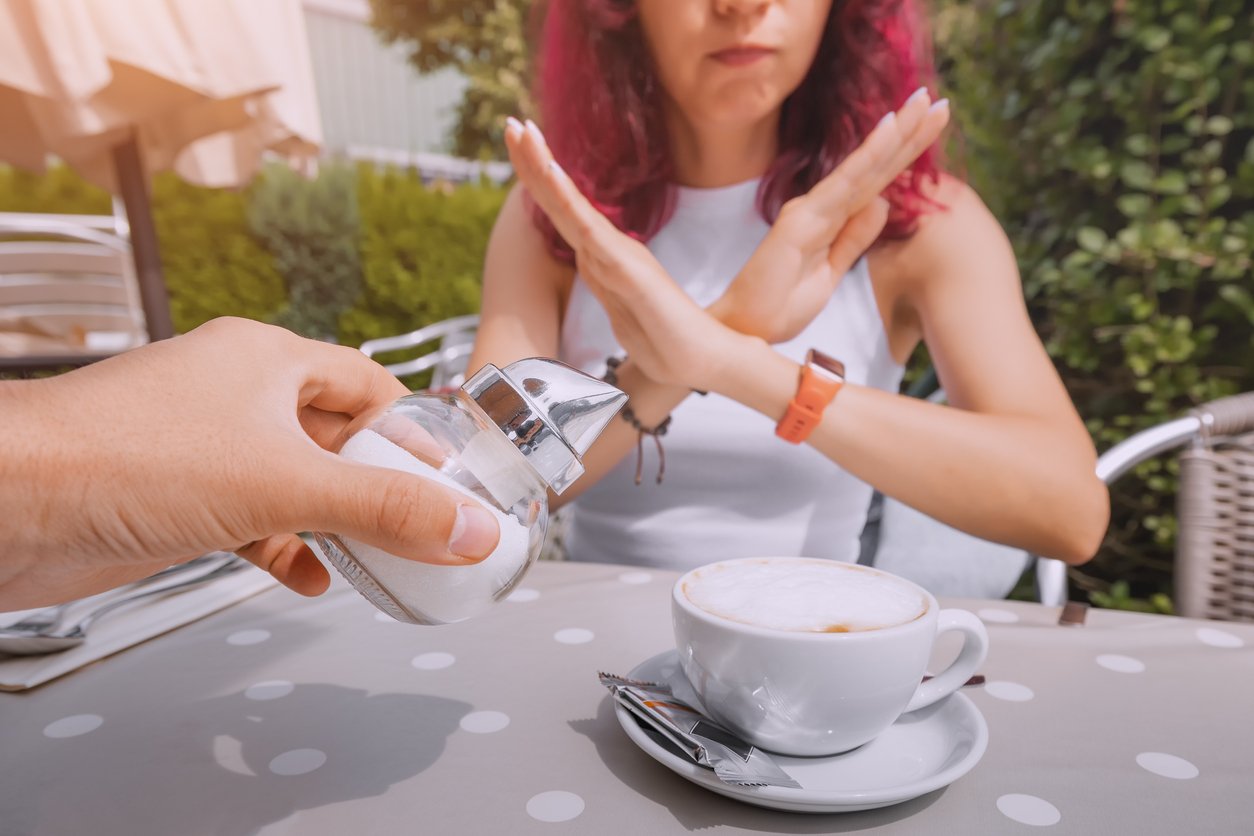Until recently, you wouldn’t have expected to see coffee listed as a health food. For decades, we’ve been advised to drink less of it. In fact, in 1991, coffee was labeled a possible carcinogen by the World Health Organization (WHO) due to studies showing coffee drinkers had a higher incidence of bladder cancer than nondrinkers.
But as of 2016, the WHO reversed its stance on coffee due to a lack of evidence. And many studies have since shown how coffee actually has myriad benefits for your health.
To be clear, there’s no question that coffee isn’t for everyone. Personally, I drink it rarely because, while I enjoy the taste as well as the “buzz” it brings, I find that a few hours later, I feel jittery, anxious, and even a bit cranky.
But I’ve been enormously impressed with the research, which tells us that for many people, coffee can bring significant benefits.
In this article, you’ll discover some of the research-backed health benefits of coffee, a couple of potential downsides to drinking it, why sourcing and the “company it keeps” matter, and some healthy ways to enjoy your java.
The Health Benefits of Coffee

Coffee and Heart Health
Coffee is a vasodilator. This means that it causes blood vessels to expand, which is good for your circulation and cardiovascular system. In fact, it may even reduce your risk of heart failure and death.
In one enormous meta-analysis of 31 studies and 1,610,543 individuals, researchers found that all-cause and cardiovascular disease mortality risk decreased with the consumption of up to four cups of coffee per day. That’s not to say that you need to drink four cups per day, since drinking more coffee didn’t necessarily yield better results, but rather that even heavy coffee drinkers saw a benefit over nondrinkers.
A 2021 analysis of cardiovascular disease risk factors also found that coffee consumption was associated with a reduced long-term risk of heart failure. Interestingly, the study also looked at other dietary risk factors and found that whole milk consumption puts you at increased risk for heart failure. Leaving dairy out of your coffee can help ensure you’re not negating the health benefits of coffee.
Coffee, Dementia, and Stroke
Coffee also seems to have a particular effect on the blood vessels that feed your brain — making it an ally in the fight against all forms of dementia and stroke.
The Cardiovascular Risk Factors, Aging and Dementia (CAIDE) study tracked more than 1,400 individuals over the course of 21 years to look at a broad range of diet and lifestyle choices and health outcomes. In the study, people who drank 3–5 cups of coffee per day at midlife had a 65% decreased risk of dementia in later life.
In another more recent study, both coffee and tea were also found to decrease the risk of dementia and stroke. The researchers analyzed 365,682 participants from the UK. And they found that when the study participants drank 2–3 cups of coffee or tea (or a combination of coffee and tea) per day, they had a 32% lower risk of stroke and a 28% lower risk of dementia.
Coffee and Cancer
Does coffee fight cancer? Or does it, as some media reports and older research studies have implied, actually cause it?
In March of 2018, a judge in the state of California ruled that Starbucks and other coffee chains needed to post warnings because their brews may contain a chemical linked to cancer.
The target of the ruling was acrylamide, a potential carcinogen that’s formed when foods containing both starches and the amino acid asparagine cook at high temperatures.
Acrylamide is a by-product of the coffee roasting process. It’s also in bread and crackers, french fries and potato chips, canned black olives, prune juice, and even breakfast cereals.
So is the acrylamide in coffee a serious concern? Unlikely. If we look at the real world, outside of courtrooms and lab theories, I’ve never heard of a single study that found an elevated risk of cancer in people who drank more coffee.
On the contrary, according to one systematic review and meta-analysis, people who consume coffee are 1.45 times less likely to develop mouth and throat cancer.
Other studies have found that coffee reduces the risk of many types of cancer — including endometrial, prostate, brain, colon, breast, liver, lung, and skin cancers.
We don’t know for certain if acrylamide in coffee poses health risks. But we do know that coffee is associated with broad health benefits in large numbers of people.
Avoiding coffee altogether on account of acrylamide strikes me as a bit like avoiding the outdoors because sunshine can cause skin cancer. It’s true that some danger may exist. But your health would likely suffer if you spent your whole life indoors as a result.
Coffee and Type 2 Diabetes
Drinking coffee may also lead to a decreased risk of type 2 diabetes. An increase of at least one cup per day decreased the risk by 11% compared to people who made no dietary changes.
And for those who already have type 2 diabetes, coffee can possibly even prolong life expectancy. One study of nearly 4,000 people with type 2 diabetes found that those who drank coffee were 30% more likely to still be alive after being tracked for 20 years.
Coffee and Antioxidants
Coffee is an abundant source of polyphenols, a class of mostly antioxidant plant compounds known for their health-protective effects. Among the most potent types of polyphenols in coffee are chlorogenic acids, which fight free radicals and prevent oxidative stress damage that can lead to degenerative disease.
In addition, it turns out that coffee is a major source of other kinds of antioxidants, too. (Antioxidants help to prevent the damaging effects of oxidation on cells throughout your body.) In fact, coffee is the #1 source of antioxidants in the American diet — by a wide margin. We know that the average American’s diet is woefully deficient in antioxidants. And in that context, the antioxidants in coffee are clearly beneficial. But one thing we don’t know is how helpful coffee might be for people who are already eating an abundant amount of antioxidant-rich fruits and vegetables. If your body isn’t antioxidant-starved, it’s possible that the net benefits of coffee will be less dramatic because your diet’s already healthier than the norm.
Potential Coffee Downsides to Drinking Coffee
Caffeine in Coffee

Of course, we can’t talk about coffee without talking about caffeine.
Caffeine affects some people very differently than others, and this is at least in part due to the different ways in which it’s metabolized. Studies have shown that genetics may play a part in how sensitive someone is to caffeine, and whether they get jittery from it or not. However, for most of us, caffeine is a stimulant, meaning that it increases nervous system activity and communication to the brain.
For many people, coffee can become addictive because of the caffeine that it contains. And as with many habit-forming or addiction-fueling compounds, the more you consume, the more your body develops a tolerance to it — and the less effect it has on you. As people come to rely on caffeine for mental alertness and focus, they sometimes use it to mask fatigue that might really be a result, not of caffeine deficiency, but rather of a lack of sleep, poor nutrition, or other lifestyle factors. The unfortunate side effect is that coffee drinkers tend to need more and more to get comparable benefits and experience headaches and other withdrawal symptoms if they skip a day.
Because caffeine stimulates the nervous system, drinking coffee can also make it harder to sleep, especially if you drink it later in the day. And it can further exacerbate anxiety and related disorders, even contributing to panic attacks in some individuals.
Also, pregnant women are advised to avoid coffee because caffeine can not only cross the blood-brain barrier but the placental barrier as well.
Overall, whether you should drink coffee or not is highly individualized depending on factors such as your metabolism, mental health, and pregnancy status, among other things. Always listen to your body first.
How Much Coffee Is Too Much?

As with many things, moderation is key when it comes to coffee. And there is such a thing as having too much coffee. According to the US FDA, 400 milligrams is considered the recommended upper limit of caffeine consumption per day.
How much caffeine is in a cup of coffee? Most coffee averages between 80–100 mg of caffeine per cup, but it depends on factors such as how the beans were processed and the brewing method used. A grande (16-ounce) medium roast from Starbucks, on the other hand, contains 310 mg of caffeine.
What About Decaffeinated Coffee?
Contrary to its name, decaffeinated coffee still contains a bit of caffeine — but in much smaller amounts. A cup of decaf may have around 2–15 mg of caffeine, which is still much less than even a cup of black or green tea.
Unfortunately, few studies exist on the health effects of decaffeinated coffee.
But we do have studies telling us that decaffeinated coffee has about 75% of the antioxidants of the caffeinated version. Which is less — but still potentially quite beneficial.
And while many decaffeination methods involve the use of solvents like methylene chloride or ethyl acetate, the Swiss Water Process is a more environmentally friendly and chemical-free method.
What You Put in Your Coffee Matters

Although coffee on its own has a number of health benefits, coffee that comes packed with sugar, artificial flavorings, factory-farmed milk, and high fructose corn syrup probably doesn’t contribute a net benefit to anyone’s health. And the majority of people who drink coffee don’t drink it unsweetened and black.
The fact of the matter is, what you put or don’t put in your coffee matters. For example, adding dairy milk or creamers to your coffee will negate some of coffee’s potent antioxidant effects. When tested in both human and test tube studies, significantly fewer chlorogenic acids were found when milk was added to coffee. In fact, one human study showed it decreased the chlorogenic acid content by more than half. The same effect was not seen in nondairy milk, such as soy.
There are also the negative health and environmental effects of dairy to consider. And seeing as so many plant-based milks are available now, there are plenty of options that won’t harm people, animals, or the planet.
So, just because coffee may have a broad range of health benefits doesn’t mean everyone should drink it by the gallon, or guzzle a daily Salted Caramel Mocha at Starbucks (which, by the way, contains 59 grams of added sugars per 16-ounce serving).
But the data is pretty clear that a freshly brewed cup of unadulterated coffee offers a great many health benefits.
Enjoy More Conscious and Ethical Coffee
Because coffee is one of the largest exports from tropical countries, coffee production has a massive impact on the lives and livelihoods of hundreds of millions of families and farmers. Regrettably, many of them are living in countries with relatively low incomes and widespread poverty. Gender inequality and child labor are also issues found throughout the coffee supply chain, even for major coffee brands like Starbucks and Nespresso.
Additionally, coffee plantations often use a monoculture system, which is a leading cause of deforestation in many tropical regions — such as the Amazon — where coffee is grown. Monocropping harms biodiversity, increases the use of pesticides, and leads to soil degradation as well as water runoff and pollution. Coffee is also a pretty thirsty crop with a large water footprint, taking 140 liters of water to produce around 125 milliliters of coffee.
Therefore, the kinds of coffee you choose have a real impact on the kind of world we will leave for future generations. When purchasing coffee, you can make a difference by choosing brands invested in more ethical and sustainable growing practices. Although they’re far from perfect on their own, fair-trade, shade-grown, Rainforest Alliance-certified, or organic coffees are better choices for a fairer and healthier world. Organic coffee may even have higher antioxidant content than nonorganic coffee. (Read our article on food labels for more on how to decipher food packaging.)
Some of our favorite organic and sustainable coffee brands are:
- Lifeboost — our top pick for traditional beans;
- Four Sigmatic’s Think Coffee with Lion’s Mane & Chaga Mushrooms — our top pick for a caffeinated mushroom/coffee blend; and,
- Four Sigmatic’s Calm Decaf Coffee with Reishi & Chaga Mushrooms — our favorite decaf option.
Ways to Enjoy and Brew Coffee

There are many ways to brew coffee, and how you brew it can affect the strength of its beneficial compounds, flavor, and acidity.
Popular hot coffee brewing methods include pour-over, French press, and percolation. One study comparing hot coffee methods found that percolated coffee retained the highest amount of phenolic compounds (or antioxidants).
You might enjoy your coffee black, or with milk or sugar added. But as discussed in the downsides section of this article, dairy and refined sugar may counteract the health benefits of coffee. If you want to put something in your coffee for added flavor, try a plant-based milk like almond, soy, or oat milk (bonus points for your health if you go with an unsweetened variety). And if you want to add some extra flavor, try mixing in cocoa, powdered cinnamon, or vanilla. For sweetness, try a pinch of stevia or a dash of maple syrup. (Check out this article for more on the best and worst sweeteners.)
And, if you’re concerned about the acidity in coffee, try cold-brewing it. Cold-brewing drops the acidity level of coffee by approximately two-thirds. Cold-brewed coffee is also often described as having a smoother and even sweeter flavor profile than hot-brewed coffee.
You can make cold brew at home by putting ⅔ cup of ground coffee in a mason jar with three cups of filtered water and letting it sit in the fridge for at least 12 hours. Filter it as you would any coffee, and voilà — you have cold-brewed coffee. Unlike hot-brewed coffee, cold brew stores well in the fridge for up to two weeks, and if you like, you can also heat it up. It can get really concentrated, however. Which is lovely if you want to mix it with a generous helping of plant milk for a simple latte.
Enjoy Coffee for Your Health!
The debate over whether coffee is good for you continues to rage on. Like anything you eat or drink, it all depends on your individual biochemistry (as some people are more sensitive to caffeine and acidity) as well as what you put in it. But on its own (or with the addition of more healthful inputs), coffee has a number of health benefits and may even decrease your overall risk of death. Now that’s a-latte to be grateful for!
Tell us in the comments:
- Do you drink coffee? Why or why not?
- How do you like your coffee?
- What coffee health benefits surprised you the most?
Featured Image: iStock.com/Bet_Noire



